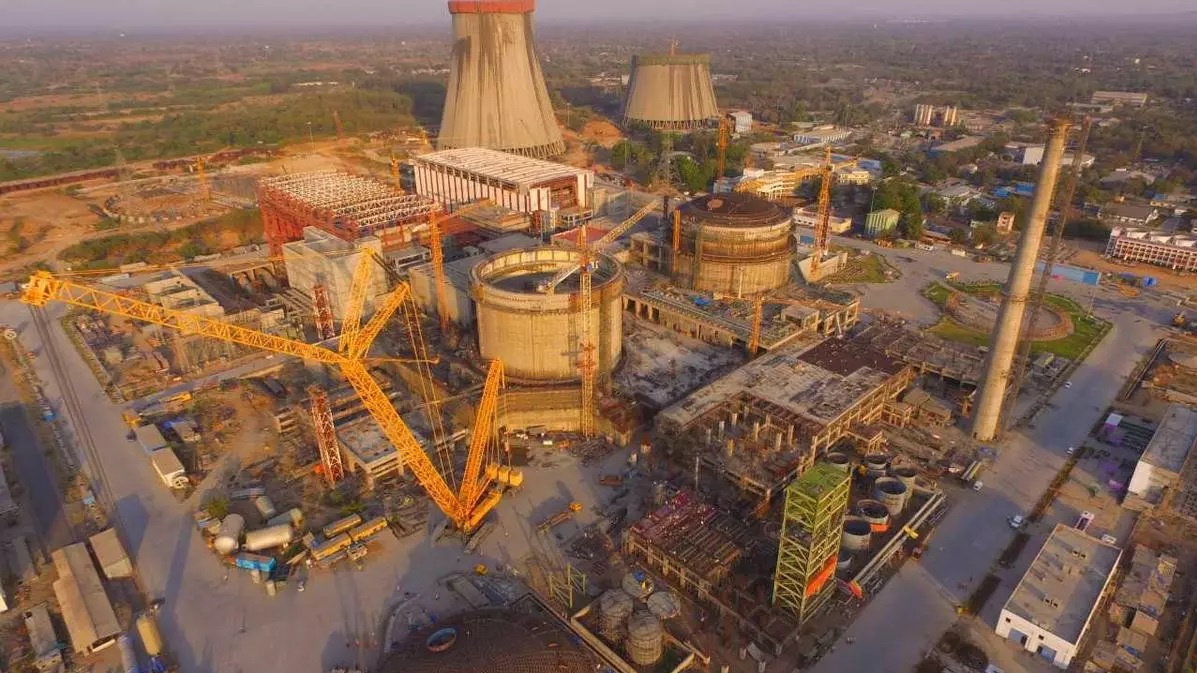
The indigenous nuclear reactor project of the state-run Nuclear Power Corporation of India Limited (NPCIL) has attracted massive interest from India’s premier industrial houses. Major corporations are now actively pursuing the country’s landmark nuclear energy tender.
Firms like Reliance Industries Limited (RIL), Adani Power, Tata Power, Hindalco Industries, Jindal Steel and Power (JSPL), and JSW Energy have all formally shown interest. They are bidding to co-develop the indigenous 220 MWe Bharat Small Reactors (BSR). This initiative relies entirely on India’s own Pressurised Heavy Water Reactor (PHWR) technology. It represents a significant step toward self-reliance in a critical sector.
Deadline Pushed to March 2026
NPCIL initially set the bid submission deadline for September 30. However, the deadline now moves to March 31, 2026. NPCIL confirmed the extension after receiving multiple requests from interested bidders.
Companies require more time to evaluate potential sites. They also need to finalise the capital expenditure (capex) and Operations and Maintenance (O&M) costs. This careful calculation is based on the data NPCIL provided. This extension ensures robust and detailed proposals.
Six States Shortlisted for Sites
The industrial bidders have already identified 16 probable sites for setting up these BSR projects. The locations span six key states across the nation.
Gujarat leads the list with five potential sites. Madhya Pradesh has four. Odisha offers three. Andhra Pradesh includes two. Jharkhand and Chhattisgarh each have one shortlisted location. NPCIL has proactively written to the governments of Gujarat, MP, and Odisha. It seeks necessary government support. This includes land and water allocation for the future nuclear facilities.
A Unique Public-Private Financial Model
The NPCIL Request for Proposal (RFP) introduces a groundbreaking financial structure for the nuclear sector. Successful bidders must finance the entire project lifecycle. This encompasses all capital and operational expenses. Bidders must also reimburse NPCIL for every cost incurred, from pre-project assessments to final decommissioning.
In exchange, the private company receives assured, long-term access. They get access to 100 per cent of the net electricity generated for captive use. NPCIL still retains ownership of the nuclear assets. It will also maintain complete operational control of the reactors.
This tender marks a historical policy shift. The government aims to expand India’s nuclear capacity. They target a huge increase to 100 GW by the year 2047. The private sector’s entry, especially into the Small Modular Reactor (SMR) segment, is critical for achieving this goal. Necessary amendments to the Atomic Energy Act, 1962, which currently restricts ownership, are expected in the Winter Session of 2025.

